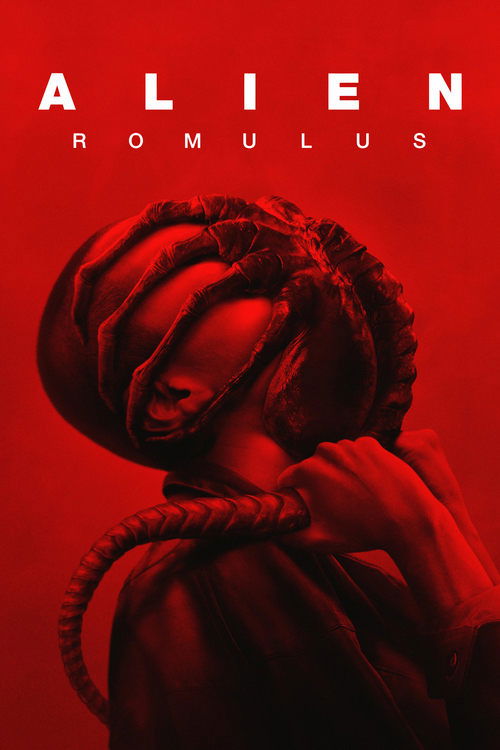
Title: Alien: Romulus
Year: 2024
Director: Fede Álvarez
Writer: Rodo Sayagues
Cast: Cailee Spaeny (Rain),
David Jonsson (Andy),
Archie Renaux (Tyler),
Isabela Merced (Kay),
Spike Fearn (Bjorn),
Runtime: 119 min.
Synopsis: While scavenging the deep ends of a derelict space station, a group of young space colonizers come face to face with the most terrifying life form in the universe.
Rating: 7.197/10
Echoes in the Void: Alien: Romulus Reanimates a Franchise with Precision and Peril
/10
Posted on July 20, 2025
Fede Álvarez’s Alien: Romulus (2024) emerges as a taut, visceral addition to the Alien franchise, threading the needle between reverence for its predecessors and a bold reassertion of the series’ primal horror. Set between the events of Alien (1979) and Aliens (1986), the film sidesteps the philosophical sprawl of Ridley Scott’s prequels, returning to the claustrophobic dread and industrial decay that defined the originals. Álvarez, known for his ruthless precision in Don’t Breathe and Evil Dead (2013), wields tension like a scalpel, carving out sequences that pulse with suspense and visceral terror. The film’s greatest triumph lies in its ability to make the familiar feel feral again, particularly through its meticulous sound design and Benjamin Wallfisch’s score, which blends eerie synth drones with percussive jolts to mirror the xenomorph’s relentless menace.
The screenplay, co-written by Álvarez and Rodo Sayagues, is a lean machine, focusing on Rain Carradine (Cailee Spaeny), a young colonist trapped on a sunless mining planet, and her synthetic “brother” Andy (David Jonsson). Their desperate scavenging mission aboard a derelict space station is a nod to the franchise’s blue-collar roots, but the script falters in its overreliance on callbacks to earlier films. Lines lifted verbatim from Alien and Aliens and a controversial CGI resurrection of a past character feel like pandering, momentarily shattering the film’s immersive spell. Yet, the narrative’s simplicity, centered on survival against a corporate backdrop of exploitation, grounds the horror in a human stakes that resonate.
Spaeny delivers a performance of quiet ferocity, her Rain a worthy heir to Ripley’s legacy without mimicking her. Jonsson, however, steals the spotlight, infusing Andy with a layered vulnerability that evolves into something chillingly ambiguous, raising questions about autonomy and programming that echo the franchise’s best android arcs. Cinematographer Galo Olivares crafts a visual language of grimy retro-futurism, with flickering monitors and shadowed corridors that evoke the Nostromo’s haunted-house-in-space aesthetic. A standout zero-gravity sequence, where acidic blood drifts like lethal orbs, showcases Álvarez’s knack for marrying practical effects with modern polish.
The film’s third act, however, stumbles. Its descent into body-horror excess, while audacious, feels tonally discordant, as if Álvarez is chasing shock over substance. This overreach, coupled with an unoriginal villain, dilutes the climax’s emotional weight. Still, Alien: Romulus is a thrilling reclamation of the franchise’s core: a reminder that in the vastness of space, the smallest sounds a hiss, a clang can herald unimaginable terror. It’s not a reinvention, but a resurrection, executed with enough craft to keep the xenomorph’s acid blood pumping.[](https://www.rogerebert.com/reviews/alien-romulus-film-review-2024)[](https://www.bbc.com/culture/article/20240814-alien-romulus-review-this-clever-gripping-and-sometimes-awe-inspiring-chiller-is-the-best-alien-film-in-decades)[](https://www.forbes.com/sites/paultassi/2024/08/17/alien-romulus-review-its-as-good-as-youve-heard-with-a-catch/)
0
0
